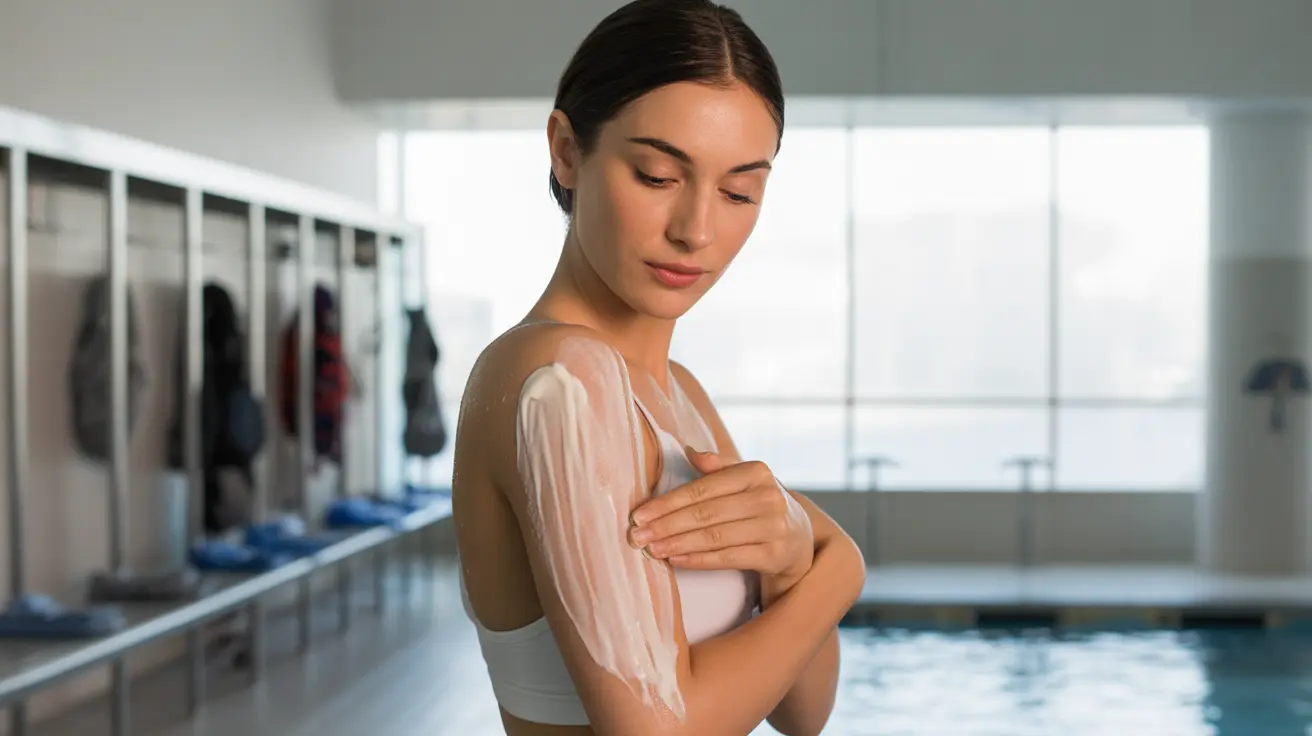For people living with psoriasis, the question of whether to take a refreshing dip in a chlorinated pool can be complicated. While swimming offers excellent exercise benefits and can even help relieve stress—a known psoriasis trigger—concerns about chlorine's effects on sensitive, psoriasis-affected skin are valid. Understanding how chlorine interacts with psoriasis and learning proper skin protection strategies can help you enjoy swimming safely.
How Chlorine Affects Psoriasis-Prone Skin
Chlorine's impact on psoriasis can vary significantly from person to person. While some individuals may experience temporary relief due to chlorine's anti-inflammatory properties, others might find that chlorine exposure triggers flare-ups or causes skin irritation. The chemical's drying effect on the skin is particularly relevant for people with psoriasis, as it can potentially disrupt the skin barrier and exacerbate symptoms.
Understanding the Chemical Impact
Chlorine works as a disinfectant by breaking down harmful bacteria and microorganisms in pool water. However, this same chemical action can strip natural oils from your skin, leading to:
- Increased dryness and scaling
- Potential irritation of existing psoriasis plaques
- Possible triggering of new flare-ups
- Temporary relief for some individuals due to antiseptic properties
Protecting Your Skin While Swimming
Taking preventive measures before entering a chlorinated pool can significantly minimize potential negative effects on your psoriasis. Here are essential steps to protect your skin:
Pre-Swimming Protection
- Apply a thick, water-resistant moisturizer or barrier cream
- Consider using a specialized swimming barrier cream
- Wear UV-protective swimwear for additional skin protection
- Ensure existing plaques are properly moisturized
Post-Swimming Care
- Rinse thoroughly with clean water immediately after swimming
- Apply moisturizer while skin is still slightly damp
- Use gentle, fragrance-free products
- Consider applying a medicated topical treatment if recommended by your healthcare provider
Alternative Swimming Options
For those who find chlorinated pools problematic, several alternatives exist that might be gentler on psoriasis-affected skin:
Salt Water Swimming
Salt water pools and ocean swimming often prove less irritating for people with psoriasis. The natural minerals in salt water can have therapeutic benefits, potentially helping to:
- Reduce inflammation
- Soften plaques
- Promote skin healing
- Provide natural exfoliation
Benefits of Swimming with Psoriasis
Despite potential challenges with chlorine, swimming remains an excellent form of exercise for people with psoriasis. Regular swimming can:
- Reduce stress levels
- Improve joint mobility
- Provide gentle exercise without high impact
- Help maintain a healthy weight, which can positively impact psoriasis management
Frequently Asked Questions
Is chlorine harmful for people with psoriasis and how can it affect the skin?
Chlorine's effects on psoriasis vary by individual. While it can cause dryness and irritation in some people, others might experience temporary relief due to its anti-inflammatory properties. The key is monitoring your skin's response and taking appropriate protective measures.
How can I protect my psoriasis-affected skin before and after swimming in a chlorinated pool?
Apply a water-resistant moisturizer or barrier cream before swimming, wear protective swimwear, and rinse off immediately after swimming. Follow up with moisturizer while skin is still damp, and use gentle, fragrance-free products.
Are salt water pools or ocean swimming better alternatives for people with psoriasis than chlorinated pools?
Yes, many people with psoriasis find salt water pools and ocean swimming more beneficial. The natural minerals in salt water can help reduce inflammation, soften plaques, and promote healing without the drying effects of chlorine.
What are the best skincare tips to prevent flare-ups after swimming with psoriasis?
Shower immediately after swimming, apply moisturizer to damp skin, avoid hot water, and use gentle, fragrance-free products. Maintain your regular psoriasis treatment routine and consider applying medicated treatments as directed by your healthcare provider.
Can swimming still be beneficial for psoriasis sufferers despite chlorine exposure?
Yes, swimming can be highly beneficial for people with psoriasis. The exercise, stress reduction, and gentle movement can help manage symptoms and improve overall health. The key is taking proper precautions to protect your skin before and after swimming.




